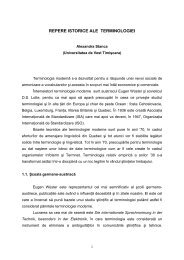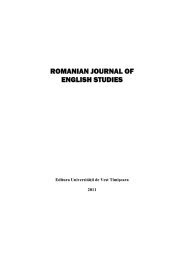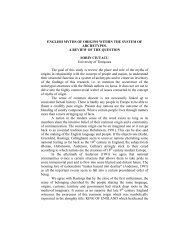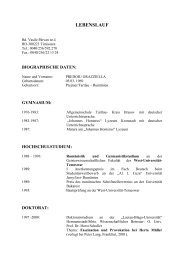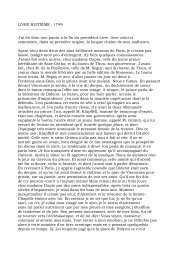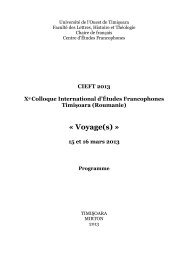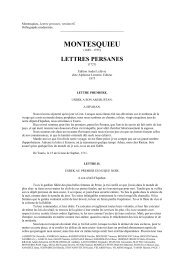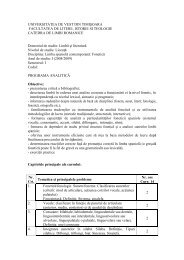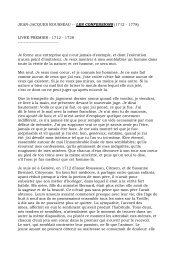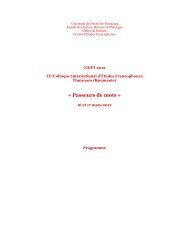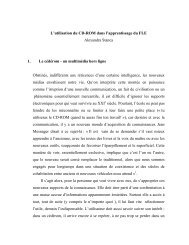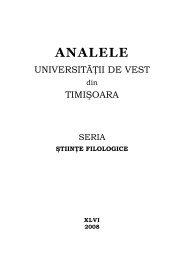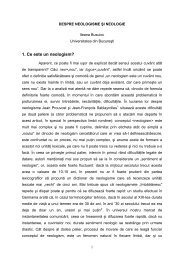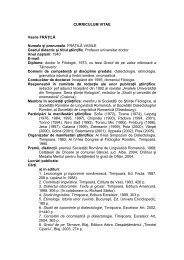TRANSLATION AND MEANING: A CULTURAL- COGNITIVE ...
TRANSLATION AND MEANING: A CULTURAL- COGNITIVE ...
TRANSLATION AND MEANING: A CULTURAL- COGNITIVE ...
Create successful ePaper yourself
Turn your PDF publications into a flip-book with our unique Google optimized e-Paper software.
Procedural concepts<br />
A part of our knowledge about translation methods and strategies<br />
has been systematized by the psychologically - oriented translation studies<br />
(Hönig, Kussmaul, 1987; Lörscher, 1991; Kussmaul, 1995). Another part<br />
comes from work on communication and second language acquisition<br />
strategies (Chesterman 1998). The term of translation technique has been<br />
widely used in the linguistic approach and in translation pedagogy, but often<br />
interchangeably with the term procedure. We shall use the term procedure as<br />
a superordinate word to refer to all the methodological devices.<br />
Let us now see what defining criteria they share and which<br />
distinguish them from the others. We have adopted some of the defining<br />
criteria from the literature on communication, language learning and<br />
translation strategies (Kintsch, van Dijk, 1983; Færch, Kasper, 1983;<br />
Lörscher, 1991), but we have also formulated some new ones.<br />
A strategy is<br />
• goal – oriented,<br />
• problem – oriented,<br />
• used potentially consciously, i.e. consciously or<br />
unconsciously,<br />
• represents an individual option from an array of<br />
available cognitive operations,<br />
• operates on a large or small scale,<br />
• requires general and specific subject matter<br />
knowledge,<br />
• leads to an optimal achievement of the goal.<br />
A method is<br />
• goal – oriented,<br />
• used consciously (may be supported by unconscious<br />
mental operations),<br />
• represents an individual option from a definite<br />
number of supraindividual text-processing<br />
procedures,<br />
• operates on a large scale and achieves superordinate<br />
goals,<br />
• requires specific subject knowledge,<br />
• leads to a probable achievement of the goal.<br />
A technique is<br />
• goal – oriented,<br />
• used potentially consciously,



